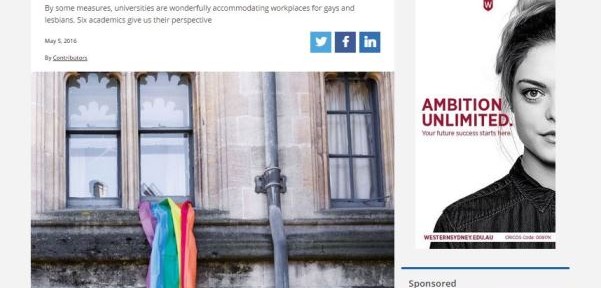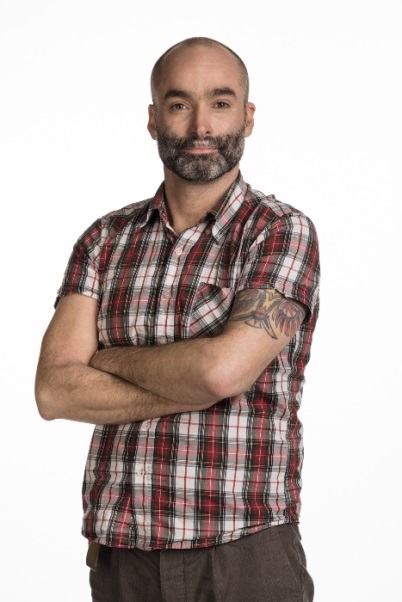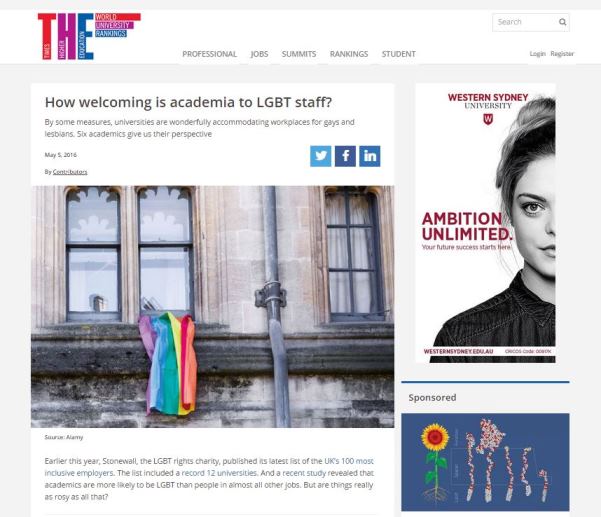This post was contributed by Professor Matt Cook, of Birkbeck’s Department of History, Classics and Archaeology. This comment piece first appeared on Thursday, May 5, in the Times Higher Education. The article “How welcoming is academia to LGBT staff?” features six academic’s responses to the question.
Birkbeck values its diversity and celebrates IDAHO – International Day against Homophobia, Transphobia and Biphobia.
“Many of those engaged in these early struggles and projects have sustained strong supportive networks. I have benefited hugely from these”
As a gay academic working on queer themes in history, my feelings of comfort and belonging owe a lot to the emergence of new areas of scholarship, to my discovery of community among colleagues and students – and to good timing.
I began my postgraduate studies in the mid‑1990s, just as work on gender and sexuality had gained some credibility and was even fashionable in some places – not least at Queen Mary University of London, where I found myself. By the time I emerged with my PhD in 2000, much ground had already been laid and my specialism was not the impediment to gaining an academic post that it had been for the preceding generation. There was a growing sense that explorations of sexuality had a real significance to broader understandings of society, culture and politics – past and present.
In the 1970s and 1980s, the scholars in the UK who inspired me – Jeffrey Weeks, Lynne Segal and Sheila Rowbotham among them – wrote much of their early work outside the university sector or against the grain of the jobs they were being paid for. They were nurtured instead by political and community networks arising from women’s and gay liberation, from the Gay Left collective and also from the History Workshop movement and journal (which, from its inception, had taken gender and sexuality – and those working beyond the academy – seriously). Such scholars had to argue that women’s and gay history were not marginal or peripheral areas of study and had a place in university departments. Once hired, some of them (including those I’ve mentioned) faced overt disdain or were “benignly” expected to focus on other things seen as more significant.
There was some notable resistance to this marginalisation. At the University of Sussex in 1991, Alan Sinfield and Jonathan Dollimore established the Sexual Dissidence master’s programme, exploring history, literature, post-structural and queer theory. It felt especially urgent in the context of the Aids crisis, Clause 28 (which prevented UK local councils from “promoting homosexuality”) and a broader homophobic backlash. Unsurprisingly, it was derided as insignificant, trendy (an insult in this context) and part of a “Loony Left” agenda. But, tellingly, the programme is still running 25 years on.
Many of those engaged in these struggles and projects have sustained strong supportive networks. I have benefited hugely from these. Research and teaching projects have meanwhile allowed me to work with LGBT community groups and with archive and museum professionals – giving me sustaining anchor points outside academia.
At Birkbeck, University of London – my institutional home for the past 10 years – I have found further communities. One is a history department with a collective commitment to wide-ranging historical work (and the intersections that it fosters). Another is with colleagues brought together through the Birkbeck Interdisciplinary Gender and Sexuality research centre. A third is with students whose engagement with their studies has often been underpinned by much more direct experiences of discrimination and marginalisation than I have had to deal with. Being a white, middle-class man has made me an insider in more ways than my queerness has set me apart.
Matt Cook is professor of modern history at Birkbeck, University of London and the author, most recently, of Queer Domesticities: Homosexuality and Home Life in Twentieth-Century London (2014).
Find out more



